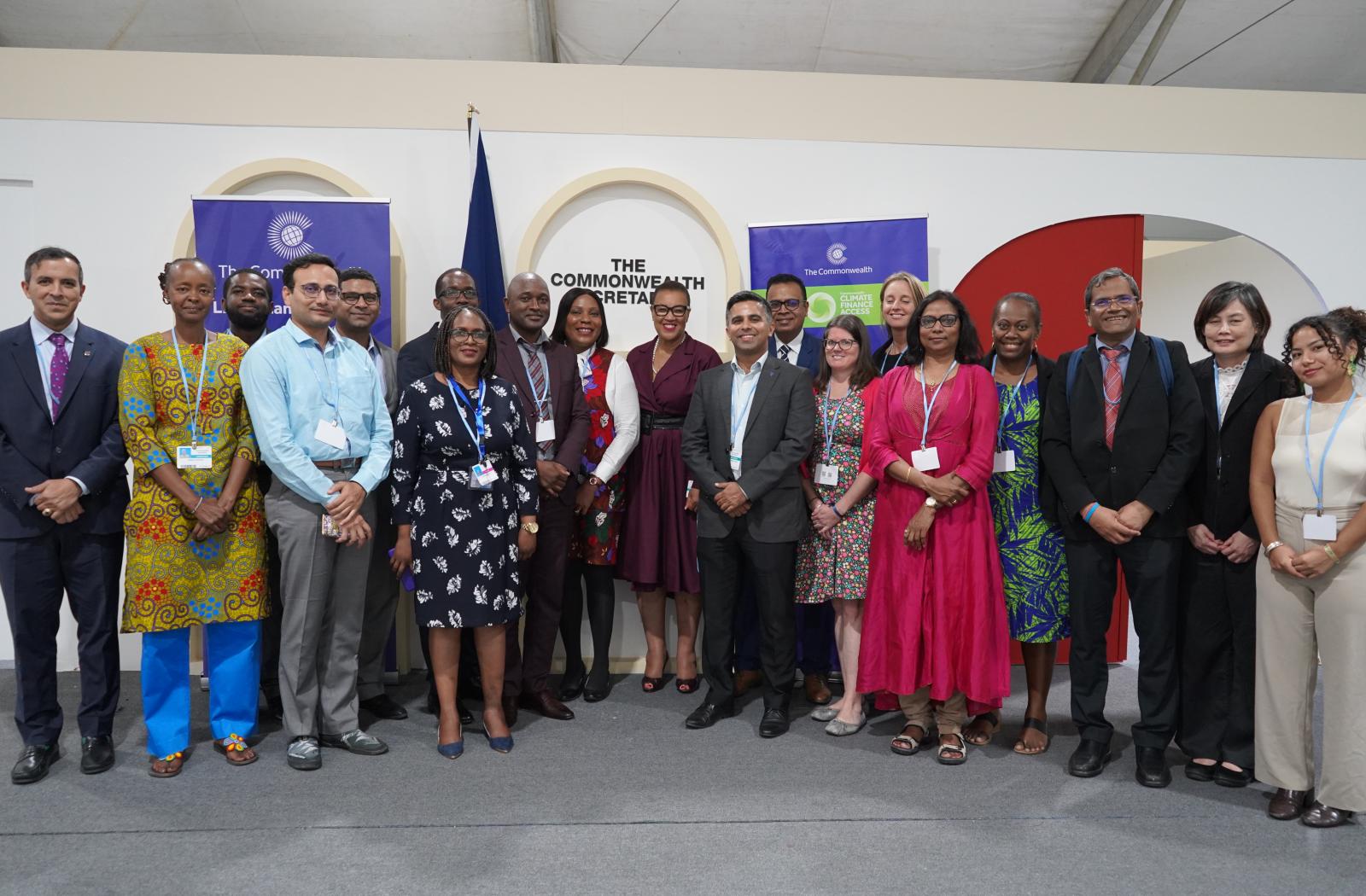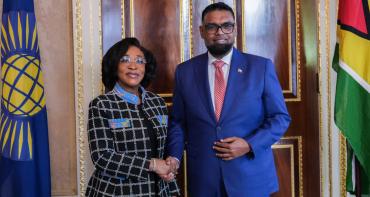Labanya Prakash Jena served as the Commonwealth Regional Climate Finance Adviser, Indo-Pacific Region at the Commonwealth Climate Finance Access Hub (CCFAH) from 2021 to 2023. To date, more than US$8 million in climate finance has been mobilised for the region, with the support of CCFAH. Nearing the end of his tenure, Labanya shares some insights about the region and his work.

Tell us a little about yourself and how you came to work with the Hub.
I have been in the climate finance area for the last seven years, before working in the financial services sector for over a decade. I noticed the job posting at the CCFAH and found it interesting and challenging. The hub and spoke model and the focus on small and other vulnerable countries fascinated me enough to want to join CCFAH’s team.
Can you tell us more about the International Solar Alliance and its partnership with the Commonwealth Secretariat?
In June 2019, the Commonwealth Secretariat and the International Solar Alliance (ISA) signed a Memorandum of Understanding to leverage each other’s strengths. The ISA has a strong footprint in the solar sector in most of the Commonwealth countries we operate. They also have the technical know-how and rich experience in designing policies, regulations and financing mechanisms in the solar sector.
The CCFAH provides local market knowledge and extensive experience in developing proposals to mobilise capital for climate action. The partnership has helped both organisations accelerate solar adoption in the Commonwealth countries.
What are the current trends of energy within the region? What is driving the adoption of renewable energy?
All the countries in the Indo-Pacific are transitioning towards renewable energy, many have programmes and policies to promote increased usage. Additionally, most counties have Nationally Determined Contribution (NDC) commitments to achieve 100% renewable energy by 2050 or earlier, in line with global climate actions.
Some of the drivers of renewable energy adoption are:
- renewable energy is cheaper than fossil fuel in several segments of the energy supply chain and reduces the reliance on imported fossil fuel for their energy needs,
- the potential of renewable energy generation in the countries, and
- the countries' commitment to the United Nations Framework Convention on Climate Change to reduce greenhouse gas emissions is also driving the adoption of renewable energy.

What are the biggest challenges for developing and financing renewable energy in the Pacific region?
The key challenges to the adoption of the renewable energy sector in the region, particularly in the Pacific, are limited financing options in the domestic market, the unwillingness of foreign investors to invest in the region, the small size of projects, and the bankability of financing arrangements for these projects.
Unfortunately, the renewable energy sector in these countries often has human resources and institutional capacity constraints. In addition, there is sometimes ambiguity in the existing renewable energy policy and regulation. Many countries lack the capacity to design the most appropriate policy, legal, and regulatory framework.
There is also a need to develop bankable and fit-for-purpose financial proposals to mobilise capital for the renewable energy sector. We are working to ameliorate some of these challenges.
Can you highlight one way in which the collaboration between the CCFAH and ISA sought to address these challenges?
We are aware that scaling up requires increased institutional capacity and skilled human resources, with the right knowledge and skillset, for raising international climate capital. For example, we organised a two-day virtual capacity-building workshop, focusing on the solar sector, for senior officials from Africa and the Caribbean, following the ‘write shop’ approach to develop financial proposals for climate projects.
Fifty-five professionals, working in government, financial institutions and the private sector, were trained. The workshop equipped them with the knowledge and skills to design concept notes, write financial proposals and how to structure financial instruments to raise capital for climate actions.
What opportunities lie ahead?
Several Commonwealth countries, particularly small island countries, are also highly vulnerable to the impacts of climate change. Of the top 50 most climate-vulnerable countries, 17 are Commonwealth members. However, several countries are ill-equipped to accelerate the adoption of renewable energy to reduce carbon emissions and increase energy access. I believe there are profitable business opportunities in the transition to a low-carbon economy, particularly in the renewable energy and electric mobility segments.
However, they need an exponential increase in funding support from developed countries and international institutions. We are committed to bridging that gap. The CCFAH will continue helping Least Developed Countries (LDCs) and Small Island Developing States (SIDS) in the Commonwealth to develop proposals and build domestic capacity to access climate finance.
Read more in the 'Ask the Expert' series
Ask the Expert: Mxolisi Sibanda, Adviser – Climate Change
Ask the Expert: Ruth Phillips Itty, Commonwealth National Climate Finance Adviser for Saint Lucia
About the Commonwealth Climate Finance Access Hub
Media contact
- Josephine Latu-Sanft Senior Communications Officer, Communications Division, Commonwealth Secretariat
- +44 20 7747 6476 | E-mail



